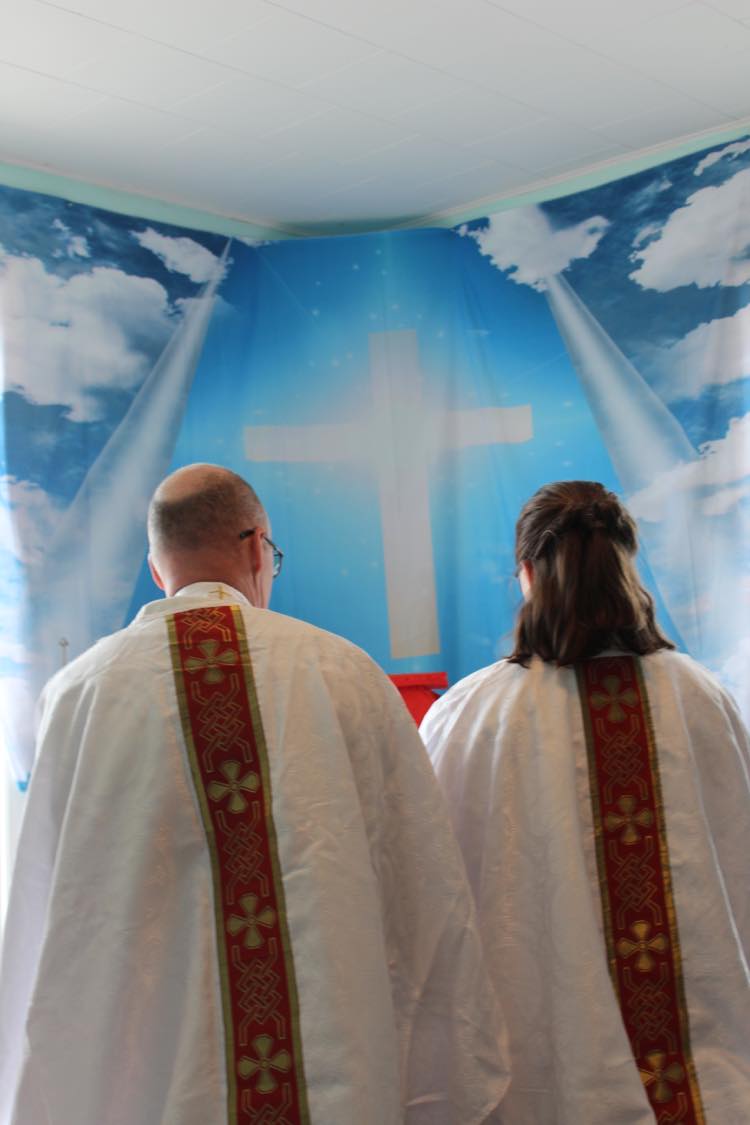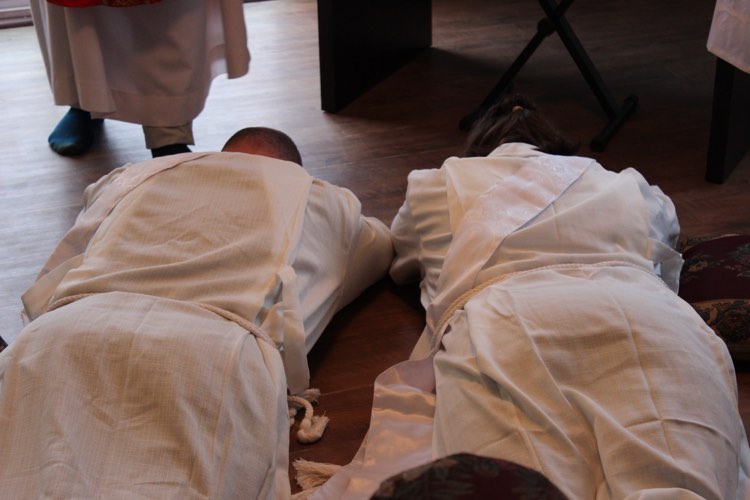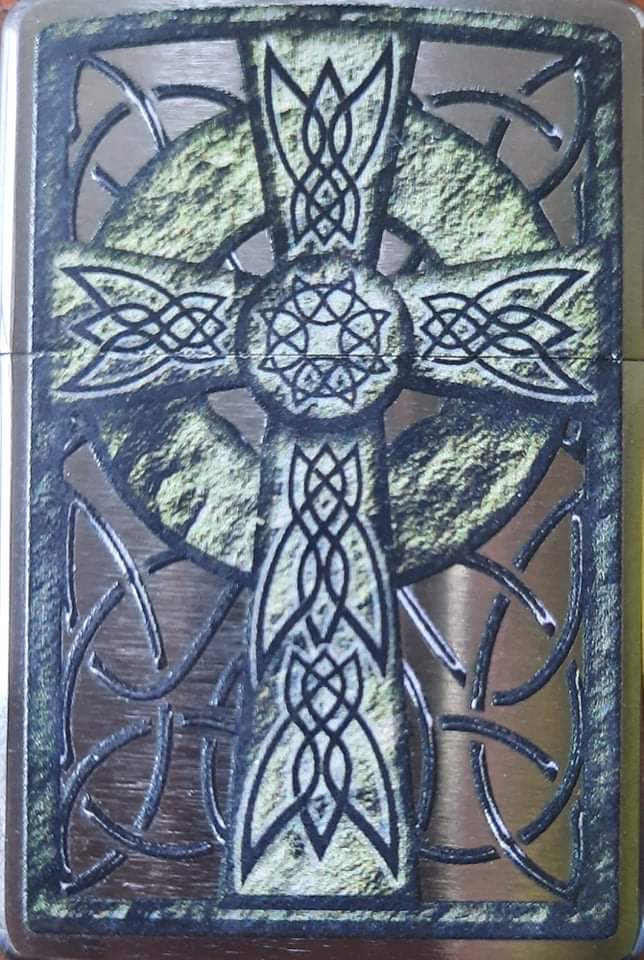- Home
- Seminary Studies
- Catholic Ecclesiology
Simply Catholic and Welcoming You
Catholic Ecclesiology
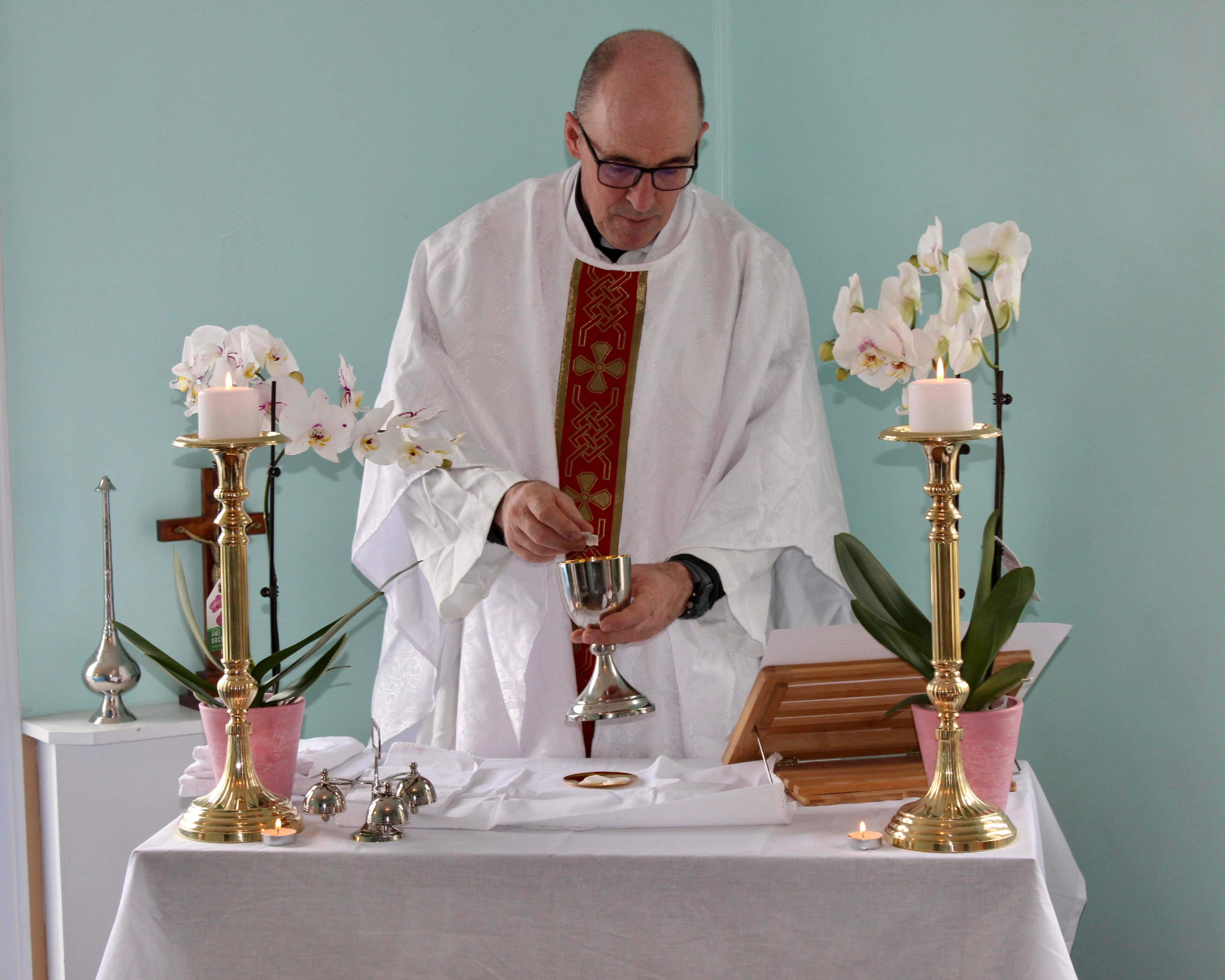
Fr. Bradley at The Liturgy of The Holy Eucharist
Eucharistic Ecclesiology is Central to The Catholic Church
Catholic ecclesiology is the theological study of the Catholic Church, its nature, organization, and mission, particularly within the context of salvation through Christ. It explores the Church's relationship to God, its role in the world, and its structures and practices, such as the sacraments and hierarchical authority. Ecclesiology also examines the Church's relationship to other Christian denominations and the broader human family.
In Catholic theology, ecclesiology includes the study of the Church, the origins of Christianity, its relationship to Jesus, its role in salvation, its polity, its discipline, its eschatology, and its leadership.
Ecclesiology is the study of the Christian church. The word ecclesiology derives from the Greek ekklesia, usually translated in the New Testament as “church.” Ecclesiology, then, encompasses what the Bible teaches about the church and one's theological convictions concerning it.
Theology is “the study of God and God's relation to the world”. Ecclesiology, as stated above, is the study of His church. Theology covers all conversations about God. Ecclesiology is a piece of the systematic theology puzzle or an arm of theological study.
The New Testament, as well as early Church history, makes it abundantly clear, and it is relatively well-accepted among both Protestants, Catholics and other Christians, that Jesus did, in fact, establish a Church as a body of believers called to gather around his teachings and live them out as a manifestation of the Kingdom of God.
The Church as the Mystical Body of Christ
This core concept, more fully developed in the 20th century, emphasizes the Church as a living, dynamic entity in which Christ is present and active. It highlights the unity and interconnectedness of all members of the Church, both living and dead.
The concept of the Church as the Mystical Body of Christ emphasizes a unique and profound spiritual union between Christ and his followers. This union is not just a moral or social one, but a mystical one, where believers are united with Christ through the Holy Spirit. This mystical body is distinct from Christ's physical body and is viewed as a living, unified entity with Christ as its head.
The Church as the People of God
This theme, (gaining prominence with Roman Catholics since Vatican II) emphasizes the Church as a gathering of people called by God, with a shared mission to proclaim the Gospel and serve humanity. It acknowledges the diversity of roles and gifts within the Church, including laypeople, clergy, and religious orders and even extends to more willingly include the various Catholic Rites.
The Church is understood as the "People of God" in the New Testament, representing all those who have faith in Christ, regardless of their background or location. This concept emphasizes the church's unity and identity as a chosen people, redeemed by Christ and called to live under God's care. The church is also seen as a body of Christ, a fellowship of the Holy Spirit, and a community of believers united by a shared faith and mission.
The Church as One, Holy, Catholic, and Apostolic
These "marks of the Church" are foundational to Catholic ecclesiology and are common to all Catholic Churches.
One, The Church is united in faith, worship and purpose with all Catholic Rites serving the Divine Commission of Christ.
Holy, The Church is holy because it is the body of Christ and is guided by the Holy Spirit.
Catholic, The Church is universal in its mission and presence throughout the world.
Apostolic, The Church is rooted in the apostles and continues their mission through the bishops, who are their successors by direct tactile/laying on of hands from one generation to the next.
Hierarchical Structure
The Church has a hierarchical structure led by the Pope in the Roman/Latin Rite and by Patriarch’s, Metropolitan bishops or Archbishops,with their College of bishops in each of the other Catholic Rites, followed by the priests, deacons and sub-deacons. The Pope, Patriarch or Metropolitan is the visible head of each Catholic Rite/Church, and the bishops are responsible for the local churches.
The hierarchical structure is vital to the Church because without the bishops, there is no Church. The bishop of each diocese is the symbol of unity in his local diocese. Communion among the bishops comes from unity with the pope or their respective leaders, as those who hold the Church’s unity together in communion. The bishops, then, exist as ministers of the Church’s unity.
Through them we have apostolic succession, which means that their office is traced back all the way back to Jesus’ apostles. As presiders over the Church’s unity, the bishops oversee things such as the sacraments, which are at the core of the Church’s life. Without the bishops, there are no sacraments, and without both, there is no Church.
The Church’s hierarchy exists to facilitate the unity of the Church, which exists as a communion.This is to say that each member exists and lives for all the other members of the Church. Each of us has a mission in the life of the Church, called to be in service to one another.
Episcopal leadership being solely defined by power has no place, since the power attached to the bishop’s office is only given to achieve and guarantee the Church’s unity.
For all Catholics, there are essentially two aspects that are necessary for a Church to be a Church. It must have a hierarchical structure, centered upon the bishops and it must have the sacraments. These are the two essential features for an ecclesial structure to be called a Church.
Eucharistic Ecclesiology
Eucharistic ecclesiology in the Catholic Church is a way of understanding the Church's nature, mission, and structure through the lens of the Eucharist, the sacrament of Christ's body and blood. It views the Church as a communion and a sending forth of mission, not just a social structure, but a living expression of Christ's presence in the world, particularly through the Eucharist.
The Eucharist is seen as the source and summit of the Church's life, symbolizing and making present the unity of believers with Christ and with each other.
The Eucharist makes Christ truly present, not just symbolically, but in a real and substantial way, through the transformation/transubstantiation of bread and wine into his body and blood.
Catholic Ecclesiology
The Missionary Nature of the Church
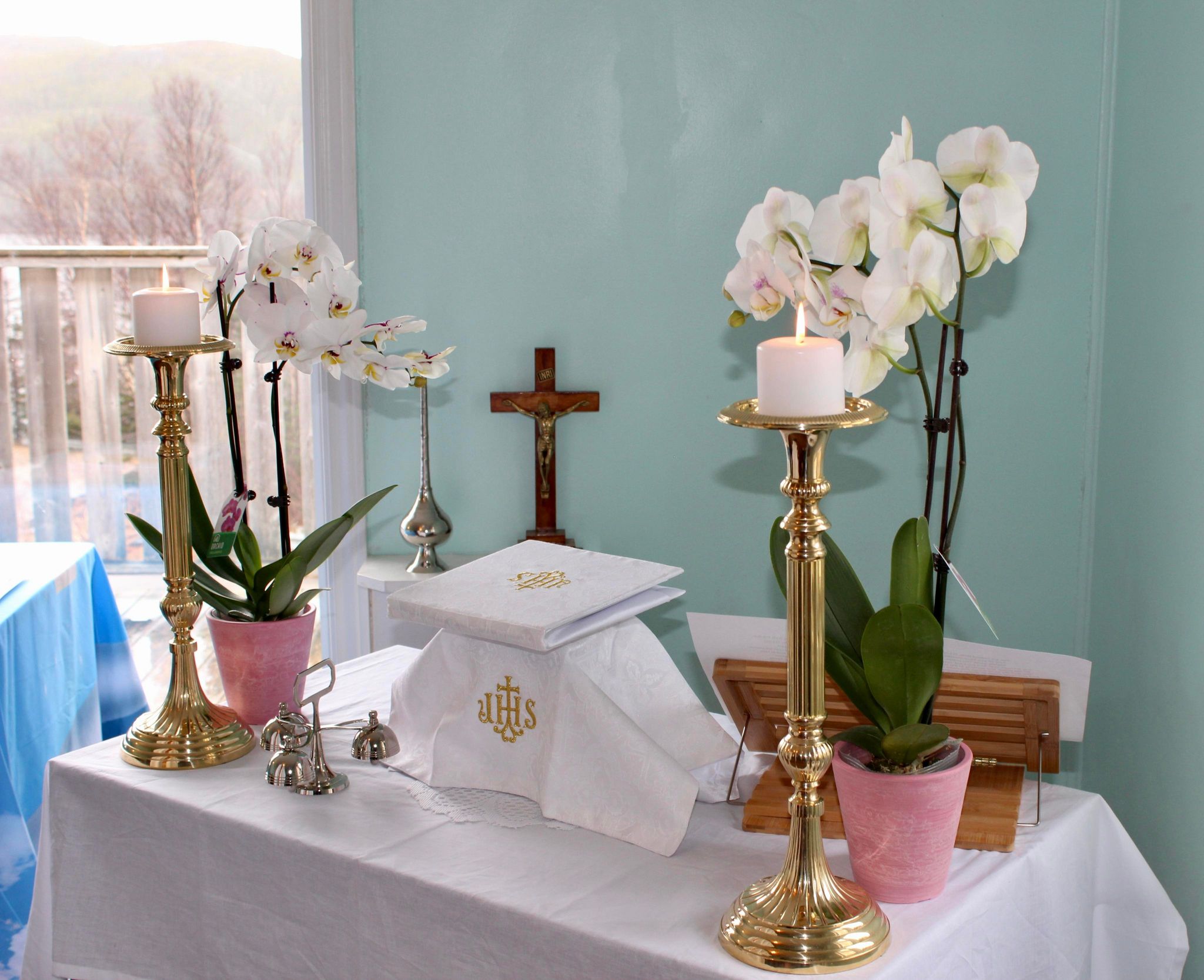
The Altar and Mass, The Celebration of The Holy Eucharist Our Reminders of Christ's Sacrifice for Our Salvation
Catholic ecclesiology sees the Church as inherently missionary by nature, an idea reiterated time and again. It is the task of every single Catholic, then, to be cooperators with Christ’s saving mission, through word and deed. The whole of our lives are to be defined by Christ. That means Christianity cannot be simply a hobby, some addition to one’s life, but a whole way of being. Because the Church is a sacrament, her members, always and everywhere, have the opportunity to be a sign by which the saving actions of Jesus are made effective in the lives of others.
Interdenominational Relationships
Ecclesiology examines the diverse interpretations of the Church among different Christian denominations, such as Catholicism, Protestantism, and Eastern Orthodoxy. It explores the theological differences and points of commonality that exist between these groups, often leading to conversations about ecumenism and unity.
The Church and the Broader Human Family
Ecclesiology also investigates the Church's relationship with the world, including its social teachings and its role in promoting justice and serving humanity. This includes exploring the Church's relationship to secular governments and its call to engage with the world in a meaningful way.
Different Perspectives
There are diverse perspectives within ecclesiology, including Catholic, Protestant, and Orthodox ecclesiology. These perspectives offer different understandings of the Church's nature, authority, and mission.
Ecumenical Dialogue
Ecclesiology plays a crucial role in ecumenical dialogue, the ongoing conversations and efforts towards Christian unity. It helps to understand the theological differences between denominations and to identify areas where cooperation and unity are possible.
Catholic ecclesiology seeks to understand the Church's identity, mission, and relationship to God and the world through a variety of theological lenses, emphasizing both its unique character and its ongoing relevance to salvation. Catholic ecclesiology ultimately deals with the mission that God has given to us while here on earth.
Recent Articles
-
Catholic-Confession
Apr 19, 25 08:53 PM
Full breakdown of the Catholic Confession Sacrament of Reconciliation -
Ordination, incardination and dismissal of clergy
Mar 03, 25 06:47 PM
Overview of Ordination to Holy Orders, incardination and dismissal of clergy -
Catholic Last Rites
Mar 03, 25 06:41 PM
An explanation of the Catholic Last Rites and Anointing of the Sick
